Blog
7 Best foods to help lower & balance blood sugar levels
The world capital of diabetes and the disease is increasing at an alarming rate. Diabetes refers to a condition in which a person develops high blood glucose levels. There are two main types of diabetes – type 1 diabetes in which body does not produce insulin and people with type 2 diabetes have insulin resistance which means their body produces insulin, but it’s unable to use it effectively.
One way to control blood sugar is to eat a healthful diet. Generally, foods and drinks that the body absorbs slowly are best because they do not cause spikes and dips in blood sugar.
The glycemic index (GI) measures the effects of specific foods on blood sugar levels. People looking to control their levels should pick foods with low or medium GI scores.A person can also pair foods with low and high GI scores to ensure that a meal is balanced.Below are some of the best foods for people looking to maintain healthy blood sugar levels.
1. Whole wheat Bread or Pumpernickel bread
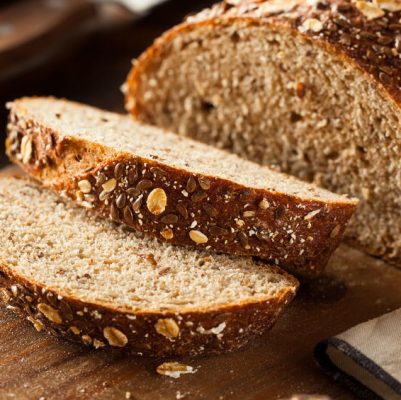
Pumpernickel and stone-ground whole wheat breads have lower GI scores than regular whole wheat bread because the ingredients go through less processing.
Processing removes the fibrous outer shells of grains and cereals. Fiber slows digestion and helps to stabilize blood sugar levels.
In a 2014 studyTrusted Source, researchers reported that spelt and rye both caused low initial glycemic responses in rats. They also found that these ancient wheat types, as well as emmer and einkorn, suppressed genes that promote glucose metabolism.
2. Broccoli and broccoli sprouts
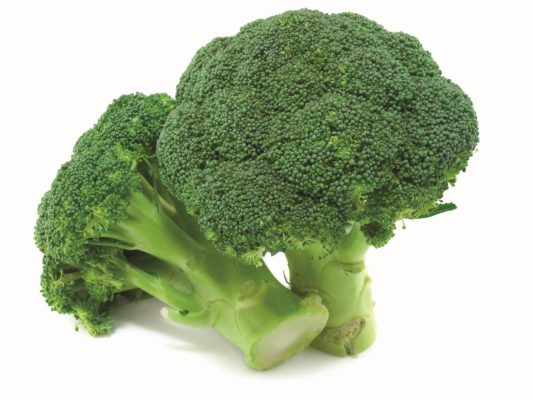
This plant chemical is produced when broccoli is chopped or chewed due to a reaction between a glucosinolate compound called glucoraphanin and the enzyme myrosinase, both of which are concentrated in broccoli.
Test-tube, animal, and human studies have shown that sulforaphane-rich broccoli extract has powerful antidiabetic effects, helping enhance insulin sensitivity and reduce blood sugar and markers of oxidative stress.
Broccoli sprouts are concentrated sources of glucosinolates like glucoraphanin, and they’ve been shown to help promote insulin sensitivity and reduce blood sugar levels in people with type 2 diabetes when supplemented as a powder or extract.
3. Nuts
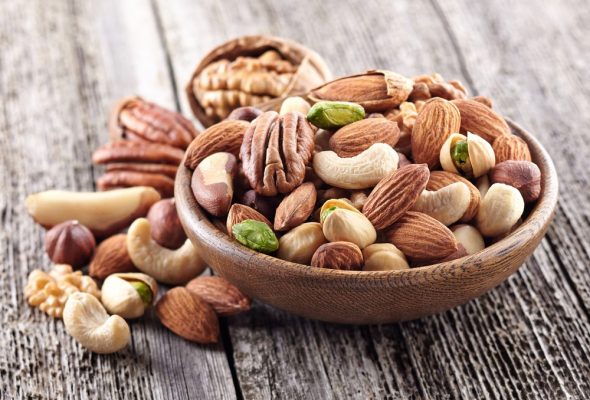
Research has shown that eating nuts may be an effective way to help regulate blood sugar levels. According to Wikipedia, while fruit seeds are separate from the fruit itself, in nuts (according to the botanical definition of the term), the seeds and fruit (which the seed will use to grow if planted) are bound up together, making them among the most nutritious foods on the planet.
A study in 25 people with type 2 diabetes demonstrated that consuming both peanuts and almonds throughout the day as part of a low carb diet reduced both fasting and post-meal blood sugar levels.
Registered Dietitian and Certified Diabetes Educator Amy Campbell explained that nuts are good because they have high levels of healthy unsaturated fats, which helps lower levels of LDL “bad cholesterol.” Also, a review found diets emphasizing tree nuts at an average daily intake of 2 ounces (56 grams) significantly reduced fasting blood sugar and hemoglobin A1c (HbA1c), a marker of long-term blood sugar control, compared with a control diet, in people with type 2 diabetes.
4. Flax seeds and Flex Seed Oil
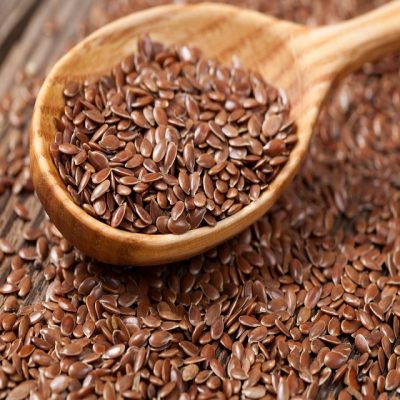
Flax seeds and flaxseed oil have multiple health benefits, they may interact with some medications that are used to regulate blood sugar and cholesterol levels.
Flax seeds is a good source of insoluble fibre. In fact, it is said that just a tablespoon of flaxseeds contain about 3 grams of fibre. Fibre takes long to breakdown and digest, which in turn slows down the release of sugar in the blood stream.
A significant portion of their insoluble fibre is made of lignans, which are a large group of polyphenols found in plants. Lignans are known to work wonders for heart health and also help improve blood sugar level. According to a study, published in the journal Plos One, participants with type-2 diabetes, who took flaxseed lignans for 12 weeks, saw an improvement in haemoglobin A1c. Some studies have also claimed that taking about 10-20 grams of flaxseed powder daily helped reduce blood sugar levels significantly.
This especially applies to flaxseed oil, as it has a higher omega-3 content. For example, omega-3 fatty acids have blood-thinning properties, which may increase the effect of blood-thinning drugs, such as aspirin and warfarin, which are used to prevent blood clots. Also, omega-3 fatty acid supplements may interfere with blood sugar regulation by decreasing blood sugar levels. This means that they might lower blood sugar too much, necessitating an adjustment to your dosage of blood-sugar-lowering medications.
5. Oatmeal and oat bran
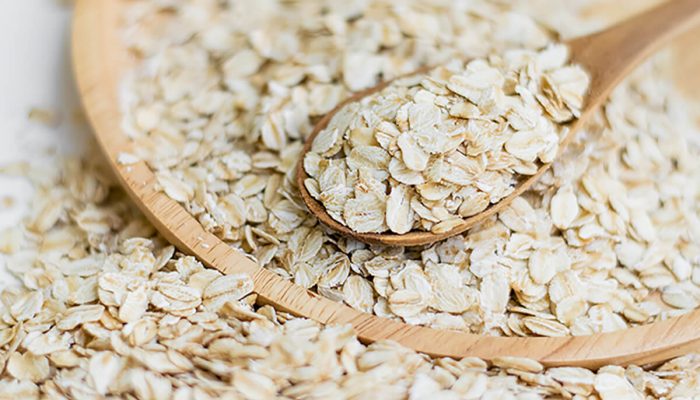
Oats have a GI score of 55 or lower, making them less likely to cause spikes and dips in blood sugar levels.
Oats also contain B-glucans, which can do the following:
- reduce glucose and insulin responses after meals
- improve insulin sensitivity
- help maintain glycemic control
- reduce blood lipids (fats)
A 2015 review published in the journal Nutrients found eating whole oats with at least 3 grams of soluble fiber daily can help Type 2 diabetes patients control blood glucose levels by increasing insulin sensitivity.
Doctors still recommend that people with diabetes limit their consumption of oatmeal because 1 cup contains roughly 28 grams of carbohydrates.
6. Avocados

Avocados have less than 1 gram of sugar, few carbohydrates, a high fiber content, and healthy fats, so you don’t have to worry about them raising your blood sugar levels.
According to a study published in Nutrition Journal, including avocadoes in your breakfast can help in stabilizing your blood sugar levels. As a matter of fact, this can be done on a daily basis in order to improve insulin sensitivity.
7. Pumpkin and pumpkin seeds
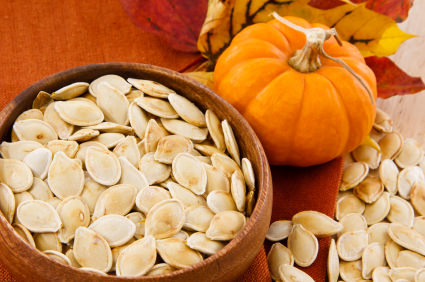
Pumpkin is high in carbs called polysaccharides, which have been studied for their blood-sugar-regulating potential. Treatments with pumpkin extracts and powders have been shown to significantly decrease blood sugar levels in both human and animal studies.
Pumpkin seeds provide one of the best naturally existing sources of magnesium. One ounce of pumpkin seeds provides 37% of the recommended daily amount of magnesium. Magnesium is a vital component in hundreds of chemical reactions within the body, including many reactions needed for blood sugar control. In fact, research shows a reduced risk of type 2 diabetes in people who consume more magnesium.
An observational study in over 127,000 people found that diets rich in magnesium were associated with a 33% lower risk of type 2 diabetes in men and a 34% lower risk in women.